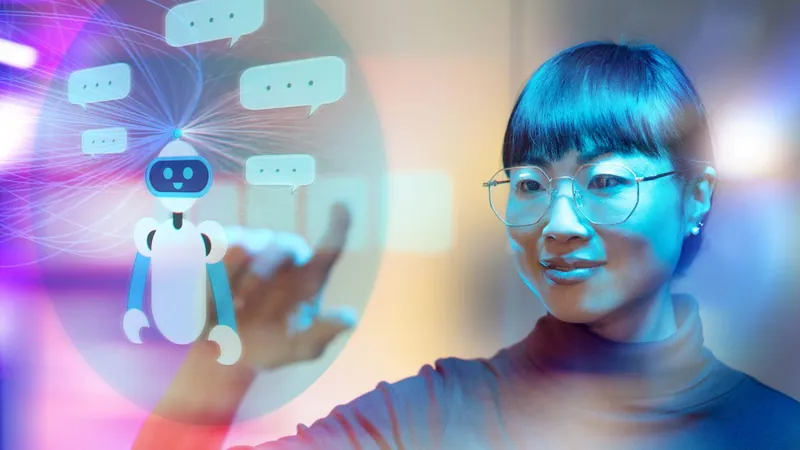
The Future of Work: Which Jobs Are Safe from AI, and Which Are Not?
2025-09-22
Author: Jessica Wong
AI's Impact on the Job Market: A Double-Edged Sword
As artificial intelligence (AI) and outsourcing revolutionize the job market, a crucial question looms over both employers and workers: Which jobs will stand the test of time, and which are at risk of being automated?
The Safe Havens: Jobs Resilient to Automation
Some professions are surprisingly safe from AI encroachment due to the inherent human qualities they demand. According to Marc Cenedella, founder of the digital job board Ladders, roles that require empathy, judgment, and a physical touch are unlikely to be replaced.
Physical Trades: Where Humans Triumph
Take emergency responders, for example. These roles, needing split-second decisions and physical agility, remain largely insulated from automation. As Andrew Gadomski from Aspen Analytics emphasizes, careers like being a firefighter or a Coast Guard rescue swimmer rely too much on human instinct and decision-making to be fully automated.
Even as technology aids these professionals—like helmets equipped with AI to assess danger—the essence of the job remains distinctly human. Gadomski notes, 'AI will augment, not replace' these essential roles.
Compassionate Professions: Healthcare and Beyond
Fields like healthcare and social services require a connection that AI simply cannot replicate. Therapists, doctors, and teachers thrive on empathy and human interaction, meaning they are far from being automated. Gadomski points out that surgeons also maintain a secure position due to regulatory uncertainties surrounding AI-assisted medicine.
Legal Eagles: Regulation Keeps Attorneys Safe
In legal professions, while some administrative roles may be automated, attorneys remain secure due to strict licensure regulations that require human advocates in the courtroom.
At-Risk Jobs: Knowledge Work on the Chopping Block
Conversely, jobs that consist of routine, repetitive tasks are facing a greater existential threat. Gadomski warns, "If a task can be completed quickly and doesn’t require physical effort, it's up for consideration." Jobs like transcription, scheduling, and even recruiting may face reductions as AI optimizes efficiency and decreases demand.
The Evolution of Roles: Partners, Not Rivals
Some jobs won't disappear but will transform dramatically. Workers adept at solving real-world problems rather than sticking to a narrow role can collaborate effectively with AI. For instance, while the demand for radiology technicians may lessen due to improved diagnostics, their role in patient interaction remains irreplaceable.
Similarly, jobs in truck driving and logistics remain relatively safe but could face major shifts if autonomous technology becomes more reliable.
Charting the Future: A New Roadmap for Employment
Looking ahead, AI is not out to replace all workers but is reshaping the employment landscape. Jobs demanding human trust, regulation, and skill will likely persist while repetitive roles fade away. For employers, the key challenge lies in strategic workforce planning, including identifying which roles are human-centric and which can be automated. The time to adapt is now, as technology will only continue to advance.

 Brasil (PT)
Brasil (PT)
 Canada (EN)
Canada (EN)
 Chile (ES)
Chile (ES)
 Česko (CS)
Česko (CS)
 대한민국 (KO)
대한민국 (KO)
 España (ES)
España (ES)
 France (FR)
France (FR)
 Hong Kong (EN)
Hong Kong (EN)
 Italia (IT)
Italia (IT)
 日本 (JA)
日本 (JA)
 Magyarország (HU)
Magyarország (HU)
 Norge (NO)
Norge (NO)
 Polska (PL)
Polska (PL)
 Schweiz (DE)
Schweiz (DE)
 Singapore (EN)
Singapore (EN)
 Sverige (SV)
Sverige (SV)
 Suomi (FI)
Suomi (FI)
 Türkiye (TR)
Türkiye (TR)
 الإمارات العربية المتحدة (AR)
الإمارات العربية المتحدة (AR)